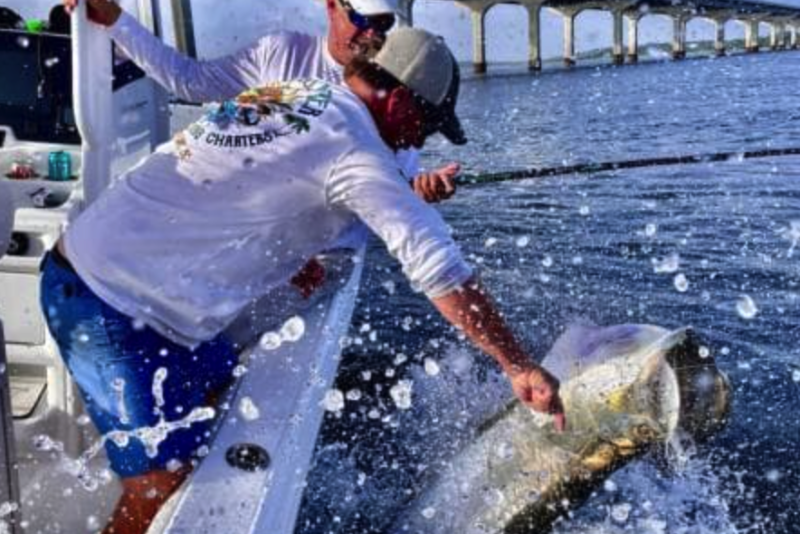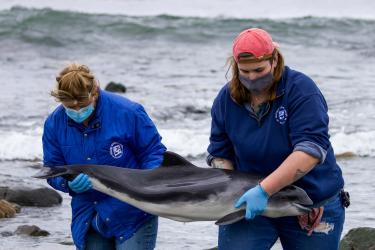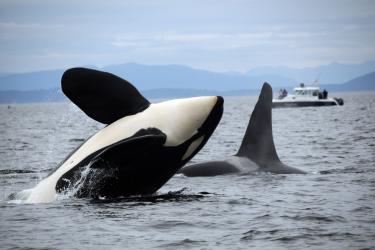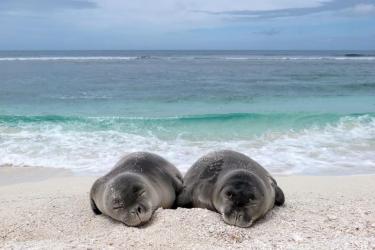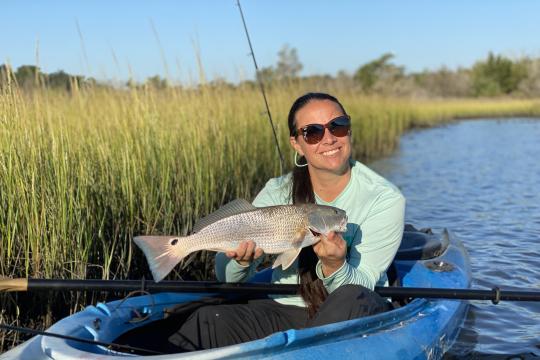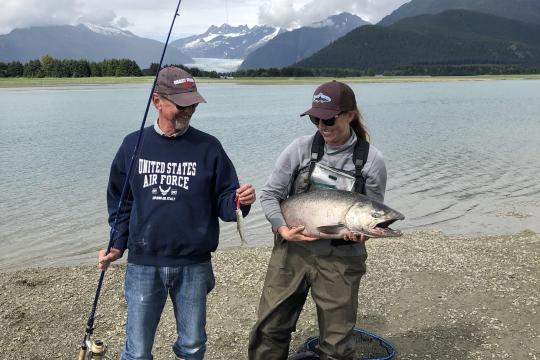NOAA Fisheries and the Atlantic States Marine Fisheries Commission co-hosted the 4th National Saltwater Recreational Fisheries Summit in March 2022. The 2-day Summit brought together members of the recreational fishing community to discuss and collaborate around the most pressing issues facing marine anglers across the country. There were roughly 170 in-person participants from the recreational fishing community, including private anglers, for-hire captains, fishing trade groups, and media from all along our coasts. Fishery scientists and managers from the Regional Fishery Management Councils, Interstate Marine Fisheries Commissions, and NOAA Fisheries also participated.
The theme of this year’s Summit was Recreational Fisheries in a Time of Change. There were a number of clear takeaways from the topics we discussed.
Read the full report: 2022 National Saltwater Recreational Fisheries Summit (PDF, 114 pages)
Climate Resilient Fisheries
“Nimble” was the word of the day during these discussions. Fisheries science and management are complex, which can often result in slow and deliberate processes. However, the speed at which changing ocean conditions are being observed requires more nimble and adaptive science and management approaches. There was also a strong desire for NOAA Fisheries to lead this conversation and provide the Councils and Commissions additional tools to tackle inter-jurisdictional governance challenges in the face of expanding, contracting, or shifting populations.
Balancing Ocean Uses
This session focused on balancing and addressing the needs of the recreational fishing community with new and growing industries that are competing for ocean space. The recreational fishing community was clear that it would like to be consulted early in the development phase of projects that may impact fishing access or availability. Recreational fishing data needed to support the planning of potential wind energy and aquaculture facilities were recognized as lacking, particularly from the private angling sector. There was also substantial concern that baseline ecological data needed to monitor short- and long-term ecosystem changes resulting from new ocean infrastructure is lacking. Participants agreed these should be in place prior to the beginning of construction.
Data Collection and Use
This session explored new and current concerns with recreational data. There was a clear desire for improved recreational fishery-dependent catch and effort data and an increase in fishery-independent data. There was also interest in expanding the types and amounts of socio-economic data and their application in management, as well as expanding the use of electronically-submitted data from anglers and the industry. Another area of interest was understanding how citizen science and angler data can be incorporated into the fishery management system.
Management Reform, Flexibility, and Optimum Yield
These management-focused sessions highlighted the varied motivations and priorities that exist across the recreational fishing community. While there was general support for exploring alternative fishery management strategies, participants expressed concerns about the need to understand the risks associated with management flexibility. This session further reinforced interest in nimble, responsive, and adaptive management as discussed during the climate session. Optimum yield, as outlined in the Magnuson-Stevens Act, was recognized as a highly variable concept, meaning many things to many people throughout the recreational community. Nevertheless, participants expressed a clear need to understand the human dimensions of recreational fishing to adequately explore what optimum yield looks like for recreational anglers.
Initial Next Steps for NOAA Fisheries:
-
Release final Summit report in July 2022
-
Continue internal NOAA Fisheries takeaway discussions
-
Hold follow-up discussions with external science and management partners
-
Initiate review of National Saltwater Recreational Fisheries Policy
Additional steps to be added as they are identified.
Based on initial feedback from participants the Summit was a successful event. NOAA Fisheries is committed to working with our partners and the recreational fishing community to implement and build on what we heard during the Summit.
Links to the Summit webinar recordings: Day 1 and Day 2.
